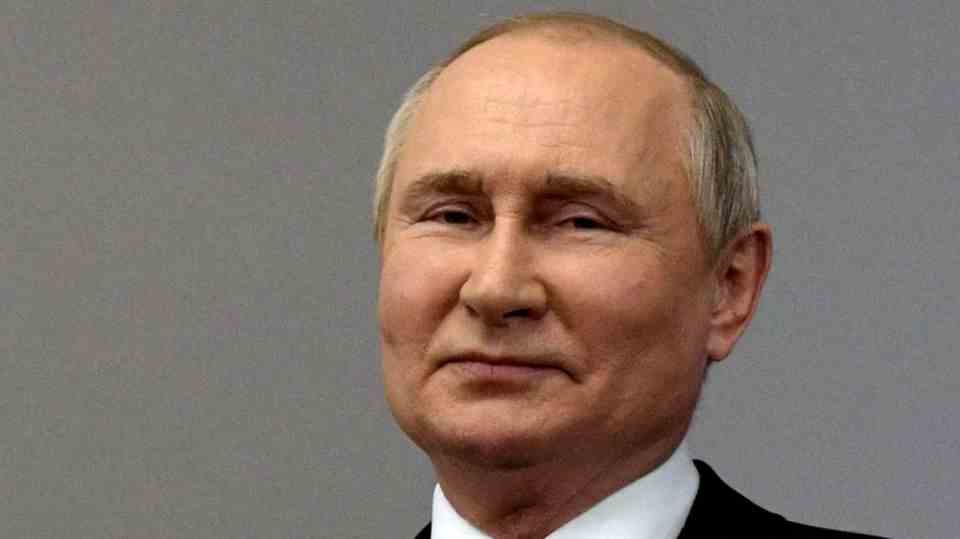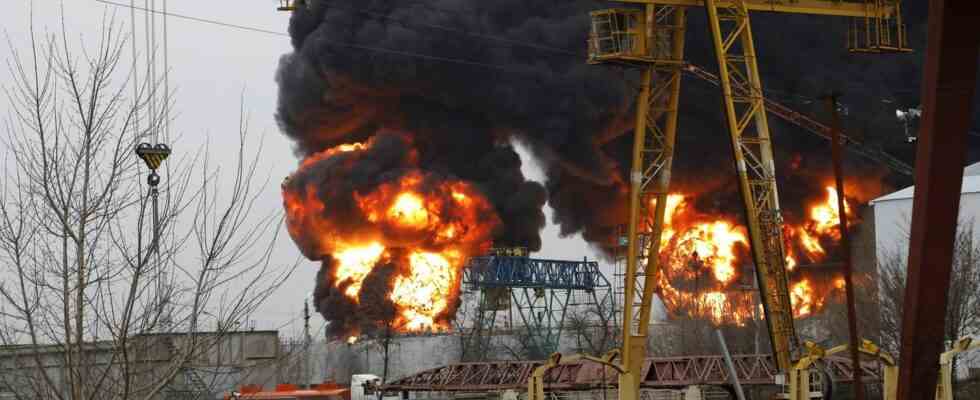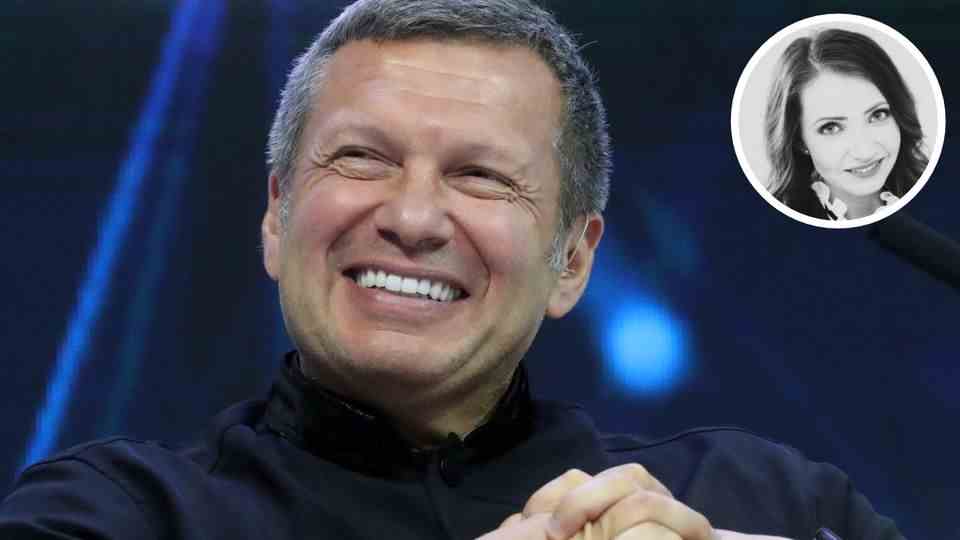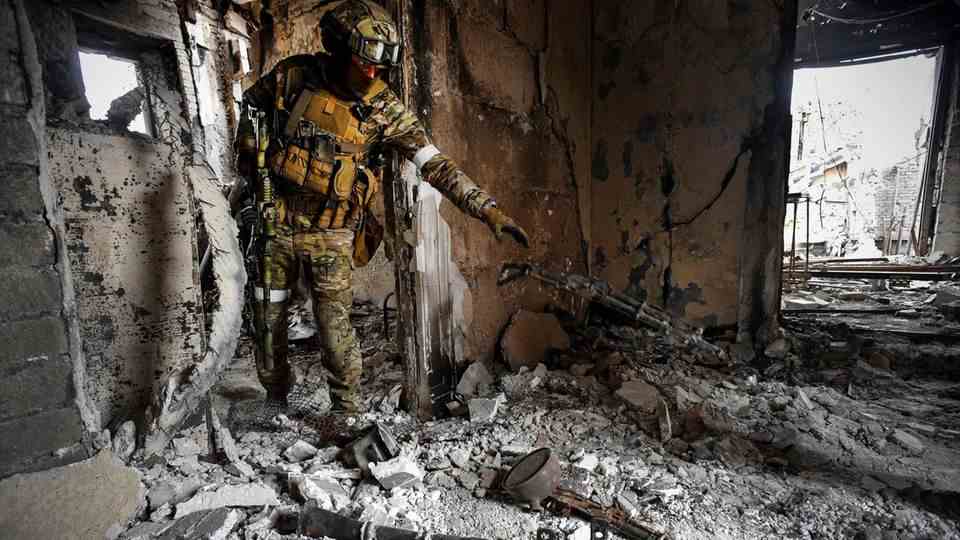Ukraine war
Attacks against the attacker – Moscow complains about shelling from Ukraine
Russia: In early April, two Russian helicopters are said to have shelled an oil storage facility in the Russian border town of Belgorod.
© Anton Vergun/TASS
After invading Ukraine, Russia has been complaining about attacks on its own territory almost every day – and is threatening heavy blows against the capital Kyiv. The incidents in the border area raise many questions. What does that mean for war?
The outcry is great in Russia because in the Russian war of aggression against Ukraine, their own territory is allegedly being shot at more and more frequently. The damage and the number of injuries on Russian territory are minimal compared to the destruction of entire cities and thousands of deaths in Ukraine – but Moscow’s military leadership is now taking the incidents as an opportunity to threaten Kyiv with even harder strikes against command centers in the capital.
Ukraine generally denies allegations of targeting targets such as ammunition depots or fuel depots in the large neighboring country. Sometimes, however, the government of President Volodymyr Zelenskyy confidently declares that Russia deserves nothing less. In the border areas, the Russians themselves are now realizing what it means to be “demilitarized,” said Presidential Advisor Mykhailo Podoliak, for example. Russia’s head of state Vladimir Putin also justified the invasion by wanting to disarm the country, which had been armed by the West.

An “absolutely natural process”
Podoljak said to the Russians: “If you decide to attack another country massively, kill everyone there en masse, crush peaceful people with tanks and use your camps in your areas for these murders, then sooner or later you will become yours have to repay debts.” This is an “absolutely natural process,” according to the Selenskyj advisor. At the same time, he emphasized that there could be different reasons for the destruction of the Russian infrastructure.
At the weekend, the governor of the western Russian region of Kursk, Roman Starovojt, complained about shelling from the Ukrainian side. In the region, the warning level is yellow for the danger of terrorism. The Russian regions of Belgorod, Bryansk and Voronezh also repeatedly report incidents.
At the beginning of April, pictures of a large fire in an oil storage facility near the city of Belgorod caused a particular stir. According to the Russians, two Ukrainian attack helicopters set fire to the depot. Videos of two helicopters flying at low altitude then circulated on the Internet. The unverifiable recordings also made many Russians wonder how such an intrusion into the nuclear power’s airspace was even possible.
The secretary of the Ukrainian Security Council, Oleksiy Danilov, denied that Kyiv had anything to do with the burning oil storage facility. Recently, however, he threatened to destroy the road and rail bridge built by Russia to the Black Sea peninsula of Crimea. The Ukrainian army could strike at the Crimean bridge if given the opportunity. At the moment the weapons are probably missing. But Danilov said clearly: “If the opportunity will be there, we will definitely do it.” The reaction from Moscow followed promptly: Then the Ukrainian capital would increasingly become a target.
Russia also complains about alleged sabotage
Russian Defense Ministry spokesman Igor Konashenkov never misses an opportunity to point out to Kyiv that Russian missiles have very long ranges. He also complains about attempts at sabotage: the domestic secret service FSB repeatedly reports arrests of suspected Ukrainian nationalists who are said to have prepared attacks on Russian territory. In addition, videos of suspects with allegedly self-made explosive devices are shown. Ukraine rejects this as nonsense.
But the suspected shelling from the neighboring country and the reports from the FSB are causing many Russians to fear that the war could spread. Russia itself fuels such fears. US Ambassador Anatoly Antonov recently warned: “Arming the Kiev regime with arms and sending foreign mercenaries is irresponsible and highly dangerous.” The weapons could end up in the hands of terrorists coming to Ukraine from all over the world. Ukrainian nationalists could also use the weapons for retaliatory strikes.
What happens on May 9th?
These incidents on Russian soil – but also a possible defeat in Ukraine, which Moscow’s propagandists have discussed at times – fuel fears that Putin could up his game again. His speech at the traditional military parade on May 9 in Moscow, with which Russia commemorates the victory over Hitler’s Germany in 1945 every year, is eagerly awaited. In the West, too, there is speculation that the Kremlin boss could launch a major attack with the arms show.
“If Putin orders a general mobilization for the war with Ukraine on May 9 (the British press writes about it), then Russia and the Russians will be in a very shitty situation,” opposition member and longtime MP Gennady Gudkov wrote on Twitter. The West’s response would then be destructive. “Putin brings the country millions of graves and a disintegration of the Russian Federation.”



